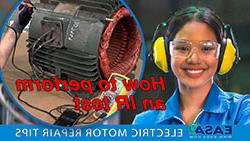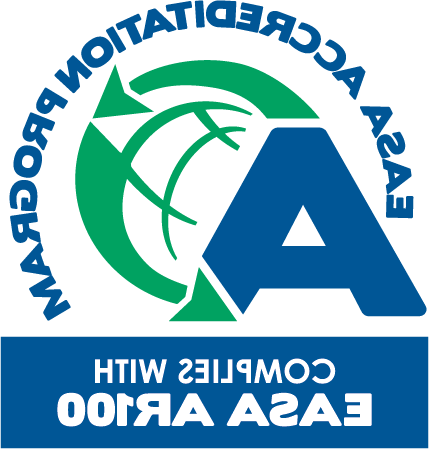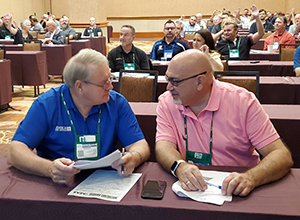Webinar Recordings
Como Usar Los Diagramas de Conexión de EASA
Todos los miembros de EASA tienen acceso al libro: Diagramas de Conexión Interna de Motores Eléctricos Trifásicos que se puede descargar gratuitamente en cnof86.com. Este libro contiene cientos de conexiones y plantillas de los devanados trifásicos más comunes de hasta 30 polos. Durante este seminario web proporcionamos ejemplos de diferentes tipos de conexiones.
Identifying Unmarked Leads of Three-Phase Motors
This presentation reviews procedures that explain how to identify unmarked leads of three-phase motors with one or two windings.
Pump Close Tolerance Fits
This presentation focusses on critical close fit tolerances and certain surface finish specifications.
Core Repair Tips To Reduce Core Loss
When a core loss test reveals localized hot spots, or visual inspection identifies physical damage, the ability to repair the damage in a cost-effective manner means the difference between repair or replacement.
Electromechanical Repair Technician (ERT) Certificate Program Introduction
This presentation provides a high-level overview of the program and is intended for anyone wanting to learn more about the ERT program.
La Importancia de la Prueba de Impedancia del Estator
Este webinario incluye procedimientos de prueba, resultados esperados y el uso de cámaras termográficas para determinar posibles problemas en las conexiones o en las soldaduras.
Using EASA’s Motor Rewind Data – Version 4
Learn how to effectively use EASA's live, ever-expanding online database of more than 250,000 windings.
Static-Couple Balancing
This focused introduction will explain the what, how and why of static-couple balancing from a practical point of view.
Examining the Causes of High Motor Current
Are you encountering high no-load current or high current with load? This presentation will look into the causes and cures.
Stator Rewinds: When Things Get Tight
When preparing to rewind random or form-wound status, sometimes there just doesn’t seem to be enough room in the stator slot for the desired conductor area and insulation quantities. This presentation looks at balancing stator copper losses against insulation reliability.

 Having trouble finding time for training? Check out the how-to videos in EASA’s new series Electric Motor Repair Tips.
Having trouble finding time for training? Check out the how-to videos in EASA’s new series Electric Motor Repair Tips.


